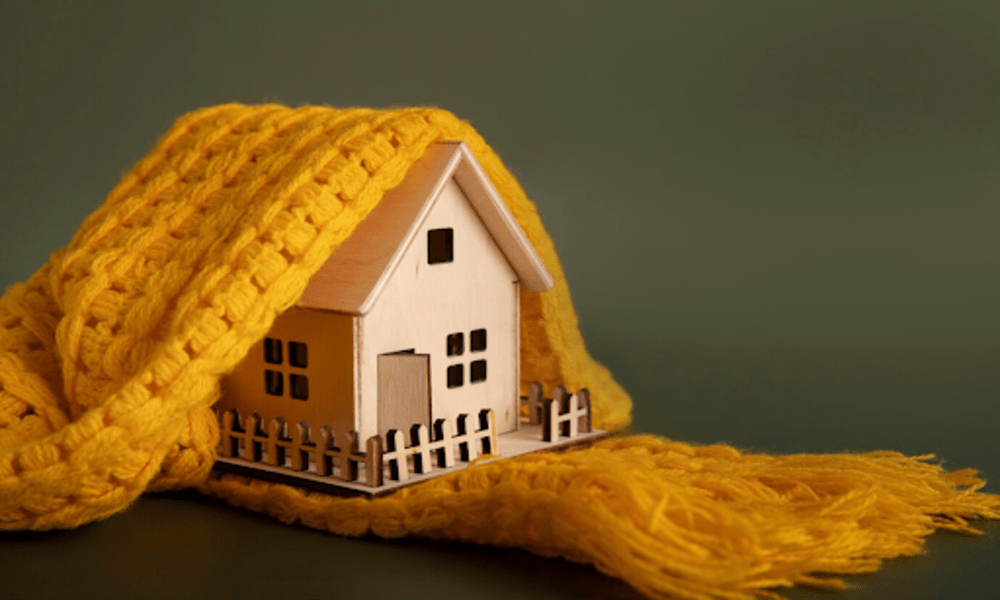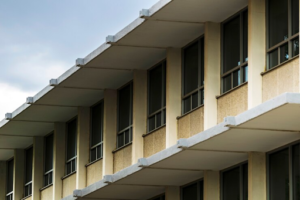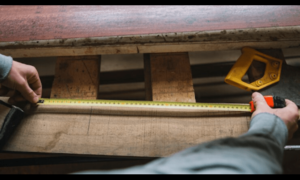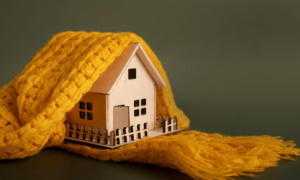Imagine stepping into your home after a long day, greeted by a welcoming warmth in winter and a refreshing coolness in summer. This sense of year-round comfort, however, isn’t solely dependent on your thermostat settings. It’s the silent hero behind the scenes, home insulation, that plays a crucial role in maintaining a stable and energy-efficient living environment.
Table Of Content:
What Is Home Insulation? Types, Importance, And More
Beyond Comfort: Understanding the Multifaceted Benefits of Home Insulation
- Reduced Energy Bills:
- Enhanced Comfort and Livability:
- Improved Soundproofing: Home insulation:
- Increased Home Value:
- Environmental Impact Reduction:
Delving Deeper: Exploring the Diverse Landscape of Home Insulation Types
- Batt Insulation:
- Loose-fill Insulation:
- Spray Foam Insulation:
- Rigid Board Insulation:
- Reflective Insulation:
Choosing the Right Insulation for Your Home: A Tailored Approach
Investing in Your Comfort and a Sustainable Future:
- Reduced reliance on heating and cooling systems:
- Improved indoor air quality:
- Peace of mind and potential tax benefits:
Taking Action: Making Your Home a Haven of Comfort and Efficiency
- Conduct an energy audit:
- Research different types of insulation:
- Get quotes from qualified contractors:
- Consider government incentives:
Beyond Comfort: Understanding the Multifaceted Benefits of Home Insulation
Investing in home insulation goes far beyond simply achieving thermal comfort. It unlocks a multitude of benefits that positively impact your wallet, the environment, and your overall well-being:
• Reduced Energy Bills:
Properly installed home insulation acts as an invisible barrier, hindering unwanted heat transfer between your home’s interior and exterior. This significantly reduces the workload on your heating and cooling systems, leading to substantial savings on your energy bills, particularly during extreme weather conditions. Studies have shown that proper home insulation can reduce heating and cooling costs by up to 30%.
•Enhanced Comfort and Livability:
A well-insulated home maintains a more consistent and comfortable temperature throughout the year. This eliminates drafts and uncomfortable temperature fluctuations, creating a more enjoyable living experience for you and your family. Imagine cozy winter evenings without feeling a chill, or sweltering summer days without excessive heat radiating from the attic.
•Improved Soundproofing: Home insulation:
materials often possess sound-absorbing properties, acting as a buffer against external noise and noise transmission between rooms within your home. This can significantly reduce noise pollution, creating a quieter and more peaceful living environment, especially in busy urban areas or near noisy roads.
•Increased Home Value:
In today’s market, energy efficiency is increasingly valued by potential buyers. Home insulation is recognized as a valuable home improvement that can potentially increase the resale value of your property. This is due to the lower operating costs associated with an energy-efficient home, making it more attractive to potential buyers.
•Environmental Impact Reduction:
By minimizing energy consumption for heating and cooling, home insulation contributes to a smaller carbon footprint. This translates to reduced greenhouse gas emissions and helps mitigate the effects of climate change. By choosing home insulation, you can make a conscious effort towards a more sustainable future.
Delving Deeper: Exploring the Diverse Landscape of Home Insulation Types
The world of home insulation is not a one-size-fits-all solution. Different types of insulation cater to specific needs and applications:
•Batt Insulation:
This versatile and popular type comes in pre-cut batts or rolls, typically made from fiberglass, rockwool, or cellulose. It’s ideal for insulating walls, ceilings, and attics due to its ease of installation and affordability.
•Loose-fill Insulation:
Also known as blown-in insulation, this type consists of loose fibers or granules blown into cavities using specialized equipment. It’s suitable for attics, crawl spaces, and wall cavities with irregular shapes, offering excellent filling capabilities.
•Spray Foam Insulation:
This liquid foam expands and hardens to fill gaps and cracks, providing superior thermal resistance and air-sealing properties. It’s often used in attics, basements, and rim joists due to its effectiveness in addressing air leaks and achieving optimal insulation.
•Rigid Board Insulation:
These rigid boards, made from materials like polystyrene or polyisocyanurate, offer high thermal resistance and are frequently used for exterior walls, foundations, and basements due to their durability and ability to withstand external elements.
•Reflective Insulation:
This type utilizes reflective materials like aluminum foil to reflect radiant heat, primarily used in conjunction with other types of insulation in attics and roof cavities. It’s particularly effective in hot climates where radiant heat gain is a significant concern.
Choosing the Right Insulation for Your Home: A Tailored Approach
Selecting the most suitable home insulation for your needs requires careful consideration of several factors:
•Climate:
Your local climate plays a crucial role. In colder climates, prioritizing high thermal resistance is essential, while in hotter climates, addressing radiant heat gain might be more critical.
•Budget:
Different types of insulation vary in cost, so it’s important to consider your budget and prioritize areas with the most significant heat transfer.
•Existing Construction:
The type and accessibility of existing insulation and building cavities will influence the choice of new insulation materials and installation methods.
•Professional Expertise:
Consulting with a qualified insulation contractor can provide valuable insights and recommendations based on your specific needs and the unique characteristics of your home. They can conduct an energy audit to identify areas of heat loss and recommend the most suitable home insulation solutions.
Investing in Your Comfort and a Sustainable Future:
Home insulation is a wise investment that offers long-term benefits for homeowners. By understanding its importance, exploring different types, and choosing the right solution for your specific needs, you can create a more comfortable, energy-efficient, and sustainable living environment. This translates to:
•Reduced reliance on heating and cooling systems:
With proper home insulation, your HVAC systems won’t have to work as hard to maintain comfortable temperatures, leading to less wear and tear, potentially extending their lifespan and reducing the need for costly repairs or replacements.
•Improved indoor air quality:
Home insulation can help minimize air leakage, reducing the infiltration of dust, allergens, and pollutants from outside. This can contribute to a healthier indoor environment, especially beneficial for individuals with allergies or respiratory sensitivities.
•Peace of mind and potential tax benefits:
Knowing your home is well-insulated provides peace of mind regarding your comfort and energy bills. Additionally, several government programs offer rebates and tax credits for home insulation improvements, making it a more financially accessible option.
Taking Action: Making Your Home a Haven of Comfort and Efficiency
Here are some steps you can take to prioritize home insulation in your home:
•Conduct an energy audit:
A professional energy audit can pinpoint areas of heat loss in your home and recommend specific home insulation improvements tailored to your needs.
•Research different types of insulation:
Familiarize yourself with the various types of home insulation and their properties to understand their suitability for your specific climate and application.
•Get quotes from qualified contractors:
Obtain quotes from reputable and licensed insulation contractors to compare prices, services offered, and their expertise in different insulation types.
•Consider government incentives:
Explore available government rebates and tax credits that can significantly reduce the cost of home insulation improvements.
By taking these steps and prioritizing home insulation, you can transform your home into a haven of comfort, energy efficiency, and sustainability. You’ll not only enjoy a more comfortable living environment and potentially lower energy bills but also contribute to a greener future by reducing your carbon footprint. Remember, home insulation is an investment that pays off in countless ways, creating a win-win situation for you, your wallet, and the environment.





